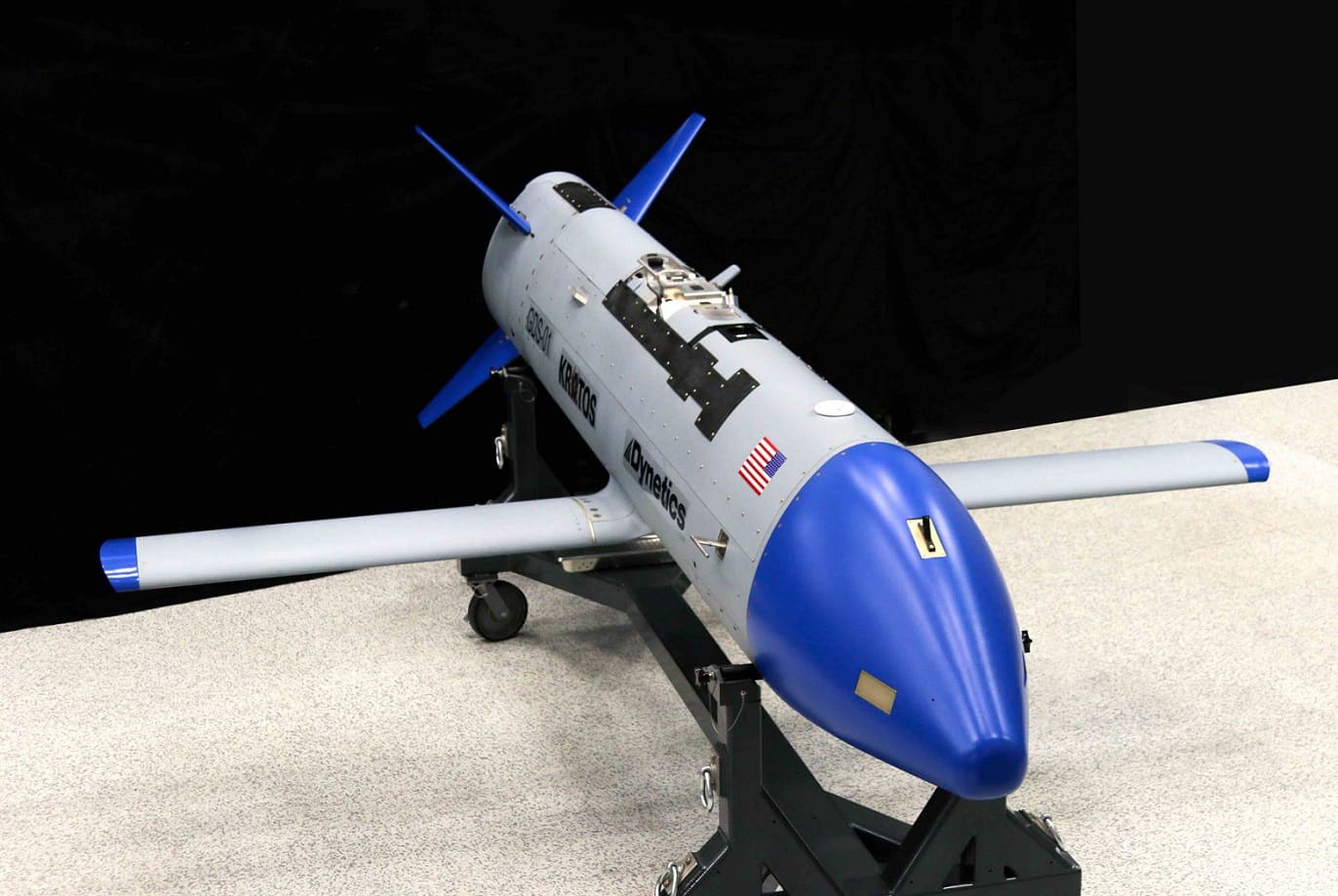Dynetics, which specializes in the rapid, affordable development of aerospace products, has disclosed further details of the development of a new X-61A reusable unmanned air system that developing for the Defense Advanced Research Projects Agency (DARPA) Gremlins program.

The Gremlins program envisions launching groups of unmanned air systems from existing large aircraft such as bombers or transport aircraft—as well as from fighters and other small, fixed-wing platforms—while those planes are out of range of adversary defenses. When the gremlins complete their mission, a C-130 transport aircraft would retrieve them in the air and carry them home, where ground crews would prepare them for their next use within 24 hours.
The gremlins’ expected lifetime of about 20 uses could provide significant cost advantages over expendable systems by reducing payload and airframe costs and by having lower mission and maintenance costs than conventional platforms, which are designed to operate for decades.
According to a recent Dynetics news release, the new unmanned air-recoverable platform continues to progress during the demonstration phase (Phase III) of the DARPA Gremlins program.
In early February, the Dynetics Gremlins team conducted a flight test of the docking system, onboard and ground-based control stations, and data links. The towed docking device (a.k.a. the “Bullet”), augmented now with an active control system, demonstrated the ability to improve overall system performance for airborne recovery, even in turns.
“The Bullet needs to remain as still as possible once it’s deployed in flight to improve docking performance for the Gremlins Air Vehicle,” said Program Manager Tim Keeter. “The active control does a great job quickly recovering from disturbances due to turbulence and C-130 motion.”
In March, the Dynetics team reached another milestone by accomplishing the first flight of the Gremlins Air Vehicle (GAV) avionics. GAV avionics were installed onboard the Calspan Variable Stability System (VSS) Lear Jet, which was also configured to mimic the performance characteristics of the GAV.
Once the Lear Jet entered the test range, the Gremlins control station took over control of the jet, directing it to fly multiple race tracks and maneuvers. The team conducted handovers between multiple in-flight and ground-based control stations to demonstrate the flexibility and redundancy of the integrated system and test the safety modes for the GAV.
“The Calspan VSS is truly an awesome capability, allowing us to fully exercise the integrated avionics, control station, and data links prior to the first GAV flight later this summer,” said Keeter.
Also, the team recently held an event on the Dynetics corporate campus, bringing dozens of Gremlins stakeholders to tour the facilities and take part in numerous demonstrations. Participants sat in on a live engine test and watched a demonstration of the recovery system that will be installed in the C-130 transport aircraft.
Currently, the entire Gremlins team is gearing up to begin flight testing of the integrated Gremlins system. First up is the checkout flight of the Gremlins Air Vehicle (GAV) followed by early recovery attempts. Once the team achieves its first recovery, they will build up to the final demonstration attempt: recovering four GAVs in under 30 minutes.